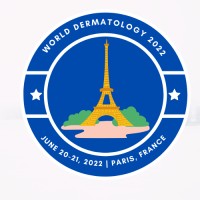Rabiah Begum
University of Leicester, United Kingdom
Title: Mapping the EQ-5D-5L to two condition specific measures in Vitiligo patients: the VITIQOL and the VNS: Results from the Hi-Light trial
Biography
Biography: Rabiah Begum
Abstract
Introduction
Vitiligo presents a significant health related quality of life (HRQoL) burden. The Viti-QoL is a 16 item condition specific measure. The Vitiligo Noticeability Scale (VNS) is a 5 point clinical measure of vitiligo. Neither instruments are suitable for economic evaluation. No mapping algorithm to convert between EQ-5D-5L and these instruments exist, at present. We present two mapping algorithms that can be used to convert responses into utilities using data from the HI-Light randomized control trial.
Methods
Data from 181 patients were collected at screening and 6 months for Viti-QoL and at 3 and 6 months for VNS. For Viti-QoL, the total score across all 16 items was used through a linear mixed effects model as well as Beta Binomial (BB) Regression models. For VNS, a discrete ‘U’ shaped, a non-linear 4 parameter model was used to model mean utility over each VNS category. The model was of the form EQ-5D = ï¡ +ï¢*VNS + ï§*log(VNS+ï¤). Several other model forms were also used.
Results
For the Viti-QoL , the model identified was : 0.9736 -0.00216*Total VitiQoL score. The AIC was -583; and predicted vs observed mean (SD) utilities were 0.896 (0.158) vs 0.884 (0.029), respectively. For the VNS, the notable ‘U shape’ of the mean utilities resulted in a poor linear fit with an AIC of -9.1 and mean predicted vs observed utilities of 0.904 (0.153) vs 0.896 (0.050) respectively. The non-linear model was of the form: 0.91 +0.0566*VNS - 0.112*log(VNS+0.9). The 95% CI for each of the parameters ï¡ï€¬ï€ ï¢ andï€ ï§ were (0.82,1.19); (- 0.052,0.164) , (-0.584,0.192) respectively. The predicted vs observed mean(SE) utilities were 0.918 (0.015) vs 0.917(0.014) respectively with an AIC of -25.6.
Conclusion
We have shown the feasibility of mapping between EQ-5D-5L and VITIQOL and VNS. There remain challenges in modelling EQ-5D utilities with VNS due to the discrete nature of the distribution.

